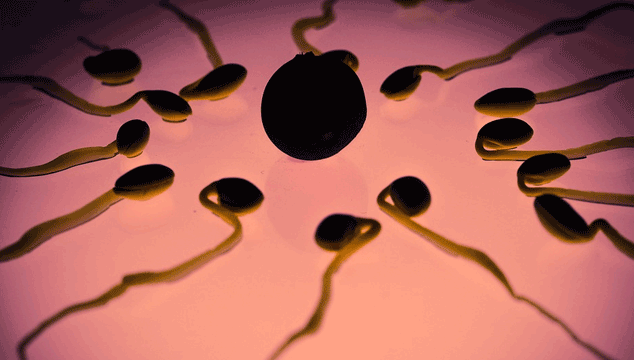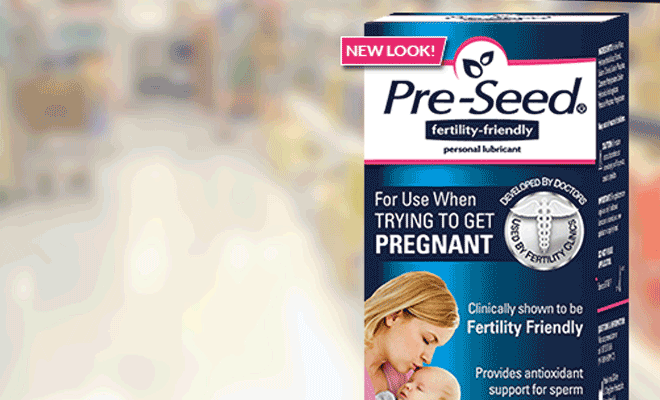![]() The information provided by our expert should not constitute a diagnosis of your condition. Always consult a medical practitioner or healthcare provider for a formal diagnosis. By making use of this content, you agree that ConceiveEasy and the expert assume no liability.
The information provided by our expert should not constitute a diagnosis of your condition. Always consult a medical practitioner or healthcare provider for a formal diagnosis. By making use of this content, you agree that ConceiveEasy and the expert assume no liability.
For many women, the journey of how to get pregnant is not really something that they think about until it is time to make it happen. Most of us just take it as a given that once we are ready to have a baby, we will just do the deed and get pregnant, and welcome a beautiful, healthy bundle of joy forty weeks later. In fact, many women spend their teenage and young adult years worrying about which birth control is best, focusing on preventing pregnancy, and breathing a sigh of relief every month when their period finally shows up.
That’s why it comes as such a surprise to some women when they are finally ready to settle down and have a baby, that getting pregnant isn’t always as easy as they anticipated. This article will go over the in’s and out’s of getting pregnant, and help to lay out the easiest (and fastest!) way to head straight to pregnancy bliss! Claim Your 20 Free Pregnancy Tests – Click Here
This article will go over the in’s and out’s of getting pregnant, and help to lay out the easiest (and fastest!) way to head straight to pregnancy bliss!
In my own personal case, I was much like the women described above. I spent the majority of my late teens and early twenties on hormonal birth control pills, setting alarms on my phone to remember to take them at the same time every day, and holding my breath the day my period was due, just in case the pills didn’t work like they were supposed to. For me, personally, I focused more on preventing pregnancy until I was in a serious relationship. I just figured that once the time was right, I would go off of my birth control pills, and since I would no longer be preventing pregnancy, it would simply “just happen.” Boy, was I wrong! Turns out, getting pregnant isn’t simply as easy as not preventing pregnancy.
I just figured that once the time was right, I would go off of my birth control pills, and since I would no longer be preventing pregnancy, it would simply “just happen.” Boy, was I wrong!
The thing that is very surprising about getting pregnant is really how little most women know and understand about how their own bodies work. It seems like somewhere along the way, most of us weren’t paying attention in health class, or somehow we just forgot how these things work. For example, many women simply don’t realize that women can’t just “get pregnant” all the time. There are only a few short days (hours even!) during a given month that a woman has a possibility of getting pregnant!
There are only a few short days (hours even!) during a given month that a woman has a possibility of getting pregnant!
That’s because women are not fertile all of the time, only during the time surrounding ovulation. Ovulation is when the egg is released from the ovaries and travels down the fallopian tube to wait for the possibility of being fertilized by the sperm. After leaving the ovaries, an egg only lives for about 12-24 hours, so technically speaking, this is the only time during a given month that a woman can actually get pregnant.

Ovulation is a little bit hard to understand, especially since there is no “set” formula for when and how often it will occur. For most women with normal, regular 28-day menstrual cycles, ovulation normally occurs on or around about day 14 of a cycle, or two weeks after the beginning of a woman’s period. Of course, not all women’s bodies are made the same, and all women have different cycles, so ovulation can occur much earlier or later, depending on a woman’s body cycles. This situation can make it sort of difficult to know when ovulation is going to occur. Luckily, there are some tools out there to help women know when they are ovulating, and thereby give them a more accurate chance of getting pregnant.
How to know if you are ovulating:
• Over the counter ovulation predictor kit (OPKs)
• Track cervical mucus
• Body changes
• Basal body thermometer
• OPKs
Over the counter ovulation predictor kit tests are a great option for women who are trying to figure out when their ovulation days will be. These tests are similar to home pregnancy tests and can tell a woman when her LH surge is about to happen. The LH surge means that ovulation will most likely occur within 24 hours of a positive ovulation test.
Aside from ovulation test kits, there are other ways for women to figure out when they are ovulating. Some women choose to track their cervical mucus and use this as a guide for when they are ovulating. A woman’s cervical fluid, or mucus, will change to a clear, stretchy, “egg white” consistency when a woman approaches ovulation.

• Body changes
There can also be some body changes as well, including a small amount of spotting, stomach cramps, and breast sensitivity and tenderness, as well as bloating. Keeping up with these body changes can also give women a better idea of when their ovulation will occur.
• Basal body thermometer (BBT)
For women who wish to track their ovulation even more closely, a basal body thermometer is a good choice. Basal thermometers measure a woman’s temperature down to a very precise degree. By taking her temperature and charting the results every single day, a woman should be able to notice a pattern where her temperature “spikes” or increases a few degrees around the same time every month. This is usually when ovulation is occurring, so this can be a great way for a woman to know when she is ovulating as well.

While ovulation is a very important part (the most important part to be exact!) of getting pregnant, there are other, also critical things that women should be doing to boost their chances of getting pregnant.
• Folic acid
For example, it’s very important for a woman who is trying to get pregnant to go ahead and get started on a daily prenatal vitamin, as well as a folic acid supplement. Most issues such as neural tube defects are things that occur right around the beginning of a pregnancy, most of the time before a woman even knows she is pregnant and before she has had a chance to start on vitamins. This is why already being on a vitamin regimen before conceiving can help protect a baby. Ask your doctor for a good recommendation of a prenatal vitamin and folic acid supplement for trying to conceive.
• Watch your weight
Aside from taking prenatal vitamins to give themselves a boost to get pregnant, women who wish to conceive should also take their own health into consideration. For example, one of the biggest things that affect a woman’s ability to conceive is, surprisingly, her weight. If a woman is overweight, it can disrupt her hormones and can affect ovulation, making it harder for her to conceive. The same is true for women who are severely underweight as well. In fact, doctors have proven that losing as little as five pounds (or gaining as little as five pounds for women who are underweight) can be enough of a boost to “reset” a woman’s hormones and help to get ovulation back on track. Weight is a very important factor for women who are trying to conceive.
In fact, doctors have proven that losing as little as five pounds can be enough of a boost to “reset” a woman’s hormones and help to get ovulation back on track!

• Eat healthy
Along the same lines as weight, what a woman puts into her body is a very important part of conceiving a baby. Women who eat a healthy, well balanced-diet are going to be healthier and are going to have a better chance of conceiving a baby. There are even full on “fertility diets” out there for women who are really serious about making sure they eat right to conceive.
There are even full on “fertility diets” out there for women who are really serious about making sure they eat right to conceive.
For the most part, a healthy well-balanced diet including whole grains, fresh fruits and veggies, lean meats, dairy products and lots of water is a great place to start. Cutting out unhealthy, processed foods like fast foods or sugary junk food products can also go a long way towards helping to build a healthy foundation for a pregnancy.
• Exercise
Beyond ovulation, vitamins, and diet, women should really be proactive in taking care of themselves if they want to set themselves up for success when it comes to conceiving. Exercise is, of course, a very important aspect of a healthy body, and that is only magnified when it comes to conception. Women should turn to regular, vigorous exercise not only as a way to keep their bodies strong and healthy but also as a way to keep their minds clear and their stress levels down when they are trying to conceive.
• Avoid stress
Stress can be detrimental to a woman who is trying to conceive, so anything that can reduce a woman’s stress levels is recommended during this time. Some women choose to also participate in massage therapy, acupuncture, and other holistic approaches in order to help keep their stress levels under control during their time of trying to conceive.
• Don’t drink, smoke or do drugs
Also, although it might seem obvious, it’s important to note that women who smoke, use drugs and drink alcohol also have a lower chance of getting pregnant. If any of these habits apply to you, it is usually a good idea to cut back or stop them completely while you are trying to conceive, in order to maximize your chances.
• Are sex positions that important?
A few other things for women to remember when they are trying to get pregnant include not worrying about sex positions and not having too much sex. While there are plenty of articles out there touting which sex positions are the best for getting pregnant, doctors say there really isn’t much difference. As long as you are tracking your ovulation and having sex on the right days, how you get there really isn’t so important.
Although gravity does make sense, so after doing the deed, ladies, prop your hips up and sit back to let the sperm find its mark!
• Too much sex is too much of a good thing!
As far as having sex too often, it really is a thing! Some couples think that the more sex they have, the more likely they will be to conceive, but that isn’t always the case. In fact, many experts agree that sperm needs about 24-48 hours to “rejuvenate”, for lack of a better word, after sex. This is why many experts say that having sex every other day is the best bet for getting pregnant. This gives the sperm enough time to build back up after sex, without letting it hang around for too long.
• Use sperm-friendly lube
Also make sure not to use a lubricant during sex, unless it is a special “sperm friendly” kind since some lubes can actually be sperm killers. A quick internet search will show you the lubricants that can be harmful to sperm as well as other, safer, alternatives. Preseed is a fantastic choice, although its application with its applicator wand inserted into the vagina pre-sex does make the whole ‘deed’ seem a bit more clinical.
Preseed is a fantastic choice, although its application with its applicator wand inserted into the vagina pre-sex does make the whole ‘deed’ seem a bit more clinical.
• Be patient
One last important thing to remember about trying to conceive is to be patient. Not every couple gets pregnant right away, and sometimes getting pregnant takes much longer than anticipated. Most couples do, in fact, get pregnant within one year after starting to try for a baby, but that is not always the case. If you are under 35 and both you and your partner are relatively healthy, you should wait a year before seeing a fertility doctor for help getting pregnant. However, if you are over 35 years of age and have been actively trying to conceive for six months or more with no luck, it’s probably a good time to see a doctor, since women’s fertility decreases as they age
• When to seek help
However, don’t worry if you do need to seek a doctor’s advice. There are tons of options out there that a doctor can use to help a couple if they are having a hard time getting pregnant. Remember that if you do find yourself in need of seeking a doctor’s advice, not to panic and not to get overwhelmed, because helpful options are out there.

As you can see, there is so much more to getting pregnant than just “stop taking birth control”. It really is a complex and scientific process, and although there is a lot to learn when you are just starting out, the good news is that most couples get the hang of things very quickly, and the majority of couples out there conceive quickly and with no problems.
If you want to get pregnant, you really do have to take matters into your own hands and become proactive about your reproductive health. The good news is, that even though there is often so much to learn, there is an abundance of things that a couple can do on their own to improve their chances of conceiving. Be sure to keep reading through our other articles to find more info on how to track ovulation and many more helpful and important tips for conceiving and having a happy, healthy pregnancy.










